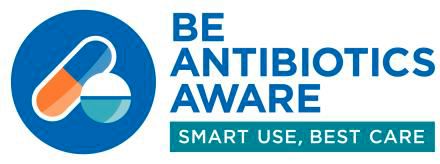Since 2004, (Antimicrobial Stewardship Program (ASP) at Nebraska Medicine) has been helping patients to receive the best antimicrobials for their infection, and assisting with decisions by prescribers on when to avoid giving antibiotics. The philosophy of the program is not to restrict access to life saving medications, but to focus on patient safety by guiding clinicians in the optimal use of these potentially dangerous drugs. Antibiotics are associated with more adverse events than any pharmaceutical class besides cancer chemotherapy and account for 19% of all emergency department visits for adverse drug reactions. As they became safer and more convenient to use over the last several decades, prescriptions for antibiotics went up. The spectrum also improved against Gram-negative organisms that live in our gastrointestinal tract which led to a rise in epidemic Clostridium difficile infection. Resistance to these miracle drugs also increased over the same time. Therefore, the situation we find ourselves in with antibiotics today is a product of their own success. In a recent study, it was found that 20% of patients receiving antibiotics during hospitalization developed an adverse event related to their therapy.1 Furthermore, it was discovered that 20% of these patients were receiving antibiotics that weren’t clinically necessary for their condition.
The ASP at Nebraska Medicine has become well-known for developing guidance documents that help clinicians choose antibiotics and diagnostic testing according to evidence and local epidemiology. This year we have developed guidance for treating diabetic foot infections and acute exacerbations of chronic bronchitis while revising our standards for managing bloodstream infections and Clostridium difficile. Although patients with diabetes do have frequent exposure to the healthcare system that could put them at risk for multi-drug resistant infections, the reality is soft tissue infections in this population are only rarely caused by pathogens such as methicillin-resistant Staphylococcus aureus and Pseudomonas aeruginosa at our institution. We are taught in medical and pharmacy school that diabetes causes immunosuppression and these resistant organisms are more prevalent in infections of the foot than other skin sites. While this is true, the incidence is under 10% overall. It is important to put this in perspective since the fear of resistant infection has led to virtually all patients with diabetes receiving vancomycin and piperacillin-tazobactam upon admission to the hospital. This is despite the cause of resistance being overuse of antibiotics. Couple this with the discovery of synergistic toxicity between these agents that damages kidneys at an alarming rate, and you have a significant patient safety concern.2 Bringing these facts to the attention of clinicians is why having an antimicrobial stewardship program is so important. That is one of the reasons the state of Nebraska has followed the lead of the Centers for Disease Control and Prevention and named this Antibiotic Awareness week.
References
- Tamma PD, Avdic E, Li DX, Dzintars K, Cosgrove SE. Association of Adverse Events with Antibiotics in Hospitalized Patients. JAMA Internal Med. 2017; 177(9):1308-1315 https://www.ncbi.nlm.nih.gov/pubmed/28604925
- Luther MK, Timbrook TT, Caffrey AR, Dosa D, Lodise TP, LaPlante KL. Vancomycin plus piperacillin-tazobactam and acute kidney injury in adults: A systematic review and meta-analysis. Crit Care Med. 2017 (Oct 28): Ahead of Print https://www.ncbi.nlm.nih.gov/pubmed/29088001.

Content provided by Scott Bergman, PharmD, Pharmacy Coordinator, Nebraska Medicine Antimicrobial Stewardship Program

1 comment